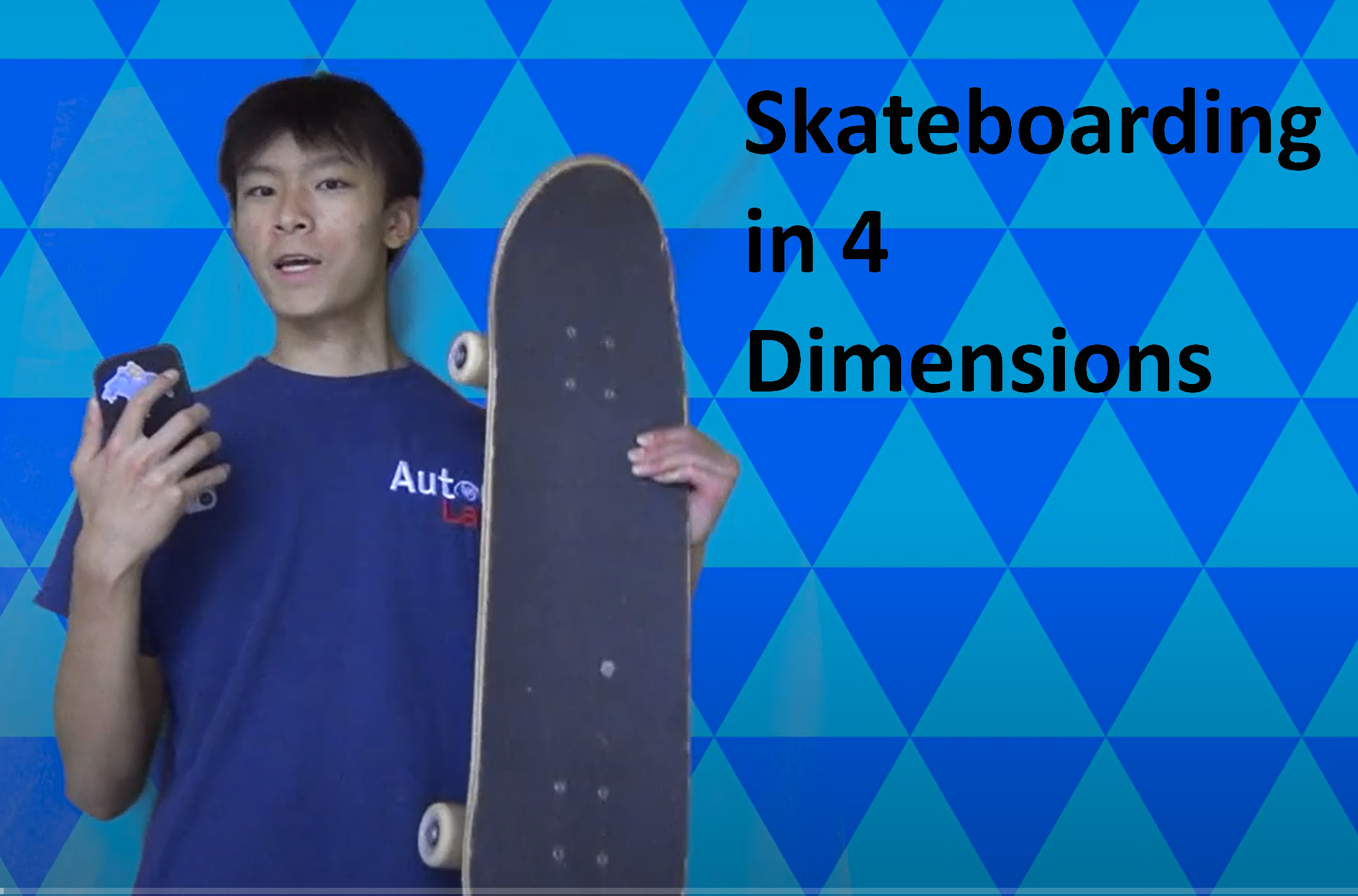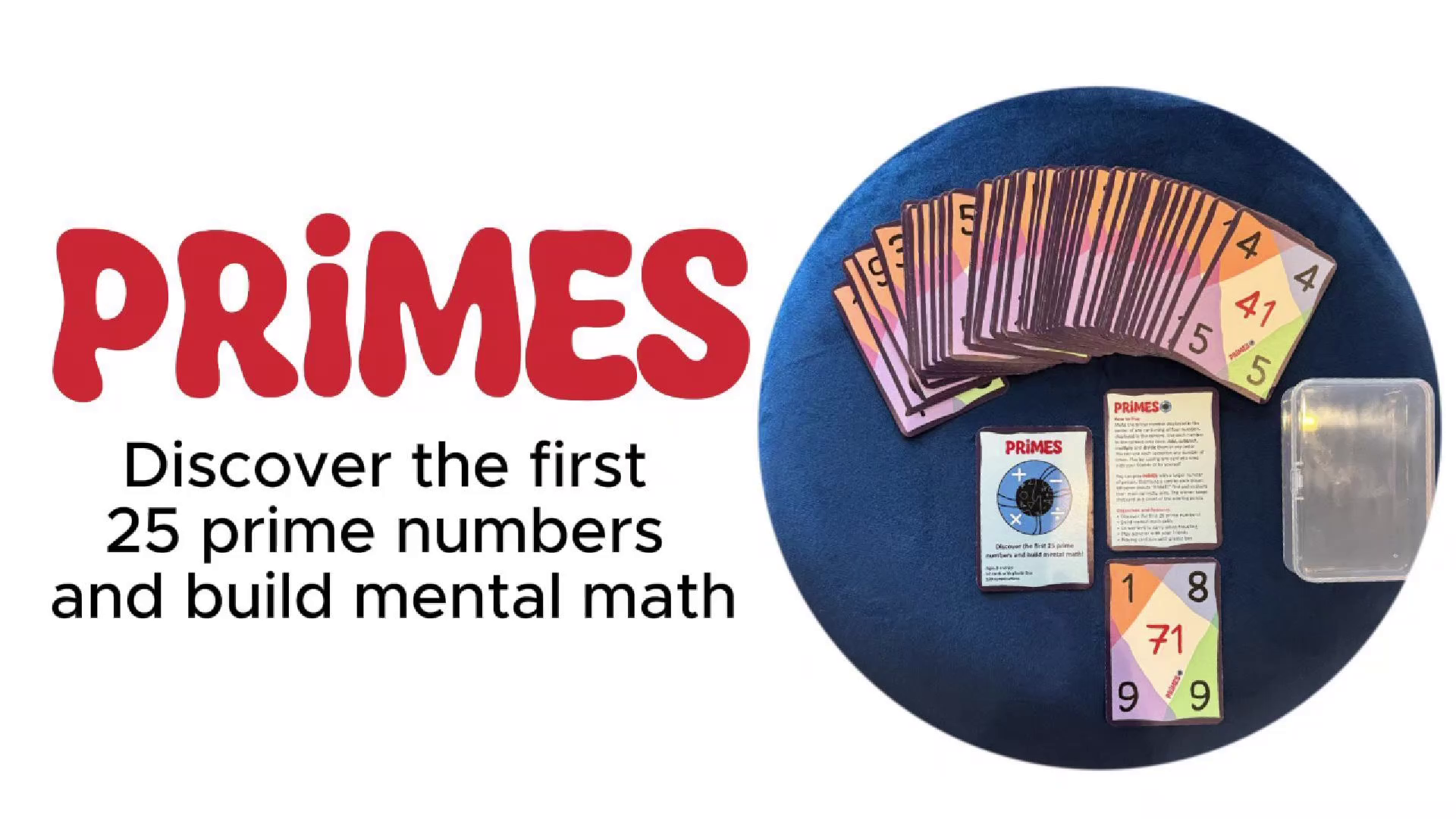MoMath Online: Student Sessions
Monday, June 8 to Friday, June 12
Click here for next week’s schedule.
Whether your child is already passionate about mathematics or just starting to explore its wonders, MoMath Online: Student Sessions will expose your child to cool areas of mathematics not covered in school and stoke the flames for a lifelong appreciation of mathematics.
Among the many comments from parents: “This was likely one of her best online learning experiences ever,” wrote the parent of a first-grade student in Pennsylvania, about Discovering Polyominoes. From the parent of a second-grader in Seattle, about Points and Shapes, “She has not been very strong with math but these MoMath classes have been giving her confidence and now she LOVES math!”
Each session is repeated at multiple times during the week to accommodate different schedules; choose the date and time that works best for you!
The Museum also offers classes for 3- to 5-year-olds through MathPlay Mini, MoMath’s program for preschoolers. To learn more and register, visit mini.momath.org.
(*) Free classes for families facing significant financial hardship: All classes are pay-if-you-can. A limited number of classes, marked below with an asterisk (*), are reserved entirely for families in need. Please choose the no-cost option only if you are a family requiring financial aid.
All times listed below are in Eastern Daylight Time (New York). Please click on a time to register.
| Grades | Online Session | Mon 6/8 | Tue 6/9 | Wed 6/10 | Thu 6/11 | Fri 6/12 |
| pre-K – 2 | Shape Shifters | 9:15 am | 10:30 am (free*) |
9:15 am | 12:30 pm (free** for members) |
3:15 pm (free*) |
| K – 3 | Discovering Polyominoes | 12:30 pm
3:30 pm (free*) |
11:00 am | 11:00 am (free*) | 11:00 am | 9:15 am (free** for members) |
| 1 – 4 | Ghostly Graphs | 11:45 am | 12:30 pm (free** for members) |
4:30 pm | 4:30 pm (free*) |
N/A |
| 2 – 5 | Points and Shapes | 9:30 am (free*) |
9:15 am
3:15 pm |
2:00 pm | 9:15 am 3:00 pm |
12:45 pm |
| 3 – 6 | Möbius Madness | 3:15 pm (free*) |
4:30 pm | 10:30 am | 9:15 am (free*) |
11:15 am (free*) |
| 3 – 6 | Secrets of Cryptography | 4:30 pm | 1:45 pm (free*) |
1:45 pm (free*) |
1:45 pm | 3:00 pm (free*) |
| 4 – 8 | Poltergeist Paths | 10:30 am (free*) | 9:30 am (free** for members) |
3:15 pm | 9:30 am (free*) |
2:00 pm |
| 5 – 8 | Crazy Dice | 1:15 pm
(free** for members) |
9:15 am | 12:30 pm (free*) |
10:30 am | N/A |
| 5 – 8 | Win like a Mathematician
Four different standalone classes available! |
N/A | Win at TicTacToe | Win at Nim
4:45 pm |
Win at Sprouts 4:45 pm |
Win at Hex |
| 7 – 12 | Evening the Odds | N/A | 3:15 pm (free*) |
N/A | 3:00 pm (free** for members) | N/A |
| 7 – 12 | Topological Tic-Tac-Toe | N/A | 2:00 pm (free*) | 9:15 am
(free** for members) |
N/A | N/A |
| 9 – 12 | Puzzle Sensations | 4:45 pm (free*) | N/A | N/A | N/A | 3:45 pm (free** for members) |
| *Free sessions are fee-waived classes reserved for families requiring financial aid. Please prioritize these limited spots for families in need. **Free-for-members sessions offer zero-cost registration for MoMath members with active memberships. Not a member but would like to join? | ||||||
| Looking for classes for 3- to 5-year-olds? Choose MathPlay Mini, MoMath’s program for preschoolers. | ||||||
Daily Sessions
Sessions are available for grades pre-K through 12, as indicated above.
After you register for your 45-minute session, you will be sent a link and instructions so you may join the fun via Zoom, the free video conferencing platform. Multiple family members may participate in a session, but please limit the link to one device and one household, as there is a limit on devices.
Session Themes
Our online education sessions offer several inspiring, mathematical themes for grades pre-K through 12.
Shape Shifters (grades pre-K through 2): Shapes are all around us, and form the basic building blocks of modern life. Using squares, rectangles, rhombi, trapezoids, and hexagons, students will discover how shapes are different from each other and how mathematicians identify and name them. Interactive activities and games will teach students about geometrical symmetries and how to construct polygons with many sides, including the tetracontakaihexagon! Materials needed: a printout to be provided and scissors (to cut out shapes prior to session).
Discovering Polyominoes (grades K through 3): You’ve heard of dominoes, but have you ever heard of trominoes, tetrominoes, and pentonimoes? Discover the many surprising shapes you can create simply by combining single-size squares. Explore various types of symmetry using these unique objects. Warning: Solving polyomino puzzles may provide hours of fun! Materials needed: a printout to be provided, pencil, marker, and scissors. Optional materials: tape.
Ghostly Graphs (grades 1 through 4): Learn the basics of graph theory by counting the ways a small ghost can pass through the walls of a given house. Discover which is more important: the number of walls, the number of rooms, or the overall layout. Explore these questions, as well as starting and ending positions, different types of paths, and other intriguing questions. Have fun in a unique and accessible introduction to this sophisticated branch of mathematics! Materials needed: pencil, paper, and markers (4 colors).
Points and Shapes (grades 2 through 5): Is there an easy way to find the area of geometric shapes? The answer lies in the geoboard, a square grid used to explore polygons. Starting with rectangles and triangles and quickly advancing to polygons of any size and shape, explore this fun and unconventional way to calculate area. Come discover the curious relationship between interiors and boundaries in shapes you design yourself! Materials needed: pencil and graph paper.
Möbius Madness (grades 3 through 6): Students construct fascinating topological objects such as Möbius bands, discovering their fundamental patterns and structures. Hands-on activities lead students to discover the surprising properties hidden around every twist and turn! Materials needed: 4 strips of paper (2 inch x 11 inch), scissors, tape, and markers (2 colors).
Secrets of Cryptography (grades 3 through 6): Explore cryptography, secret codes, and ciphers! Students are introduced to the substitution cipher, which hides messages by replacing letters or groups of letters with other letters or groups of letters. Using patterns and perseverance, learn how to create hidden messages — and how to break secret codes! Materials needed: paper, pencil, printout to be provided, and scissors. Optional materials: brad, paper fastener, or pin.
Poltergeist Paths (grades 4 through 8): Dig into graph theory by exploring the connection between vertices and edges and the walls of a haunted house. Discover a method to find out if a ghost can haunt a castle or if a figure can be drawn without lifting the pen. Explore how these two problems are related and what they have to do with bridges in 18th century Prussia! Have fun in a unique and accessible introduction to this sophisticated branch of mathematics. Materials needed: pencil, paper, and markers (4 colors).
Crazy Dice (grades 5 through 8): Once students find the probability of rolling a given sum with a pair of standard dice, they are challenged with finding a different way to number their dice to get the same probabilities. Crazy! Materials needed: sheet of paper and pencil.
Win like a Mathematician (grades 5 through 8): Games are not only fun to play, but fun to solve! Mathematicians have invented many games that present challenging math problems, some of which are still unsolved. Join MoMath’s education team online to learn, play, and analyze a variety of mathematical strategy games. Different days focus on different games, including classics such as Nine Men’s Morris, Sprouts, and Aggression, as well as a few mystery-guest games! Materials needed for “Win at Nine Men’s Morris”: printout of game board to be provided and two distinct sets of tokens; for “Win at Sprouts”: paper and pencil; and for “Win at Aggression”: printouts of game boards to be provided and two distinct sets of tokens.
Evening the Odds (grades 7 through 12): The probability of rolling different sums with a standard pair of dice depends upon the sum in question. This activity guides students to find ways to renumber their dice so every sum appears with the same probability. But then, what sums are possible to fit into this scheme? How many different sums can be rolled with equal likelihood? The answers to these questions and more are found in this activity. Materials needed: sheet of paper and pencil.
Topological Tic-Tac-Toe (grades 7 through 12): The familiar game of tic-tac-toe becomes fun and challenging when we play it on alternative topological surfaces. The typical 3×3 game board is enhanced by gluing together pairs of opposite edges together in various ways, making for more interesting games and mind-bending playing spaces. Students will learn to appreciate the ins and outs of these new objects as they develop strategies to master the mathematically enhanced games. Materials needed: sheet of paper and pencil.
Puzzle Sensations (grades 9 through 12): Explore mathematical puzzles that grabbed the headlines! Learn to solve spectacular and controversial puzzles using logic, probability, and basic graph theory. Develop puzzle-solving strategies while diving into these news-making mathematical conundrums. Materials needed: pencil and paper.
Registration Fees
Registration fees are pay-if-you-can per session. Please note that sessions by the same name are repeated sessions, not continuations of earlier sessions.
Session Policies
Strictly no refunds, no credits, and no transfers will be permitted. Spots are limited and available on a first-come, first-served basis.
Be sure to read all MoMath Online: Student Sessions Policies prior to registration.

